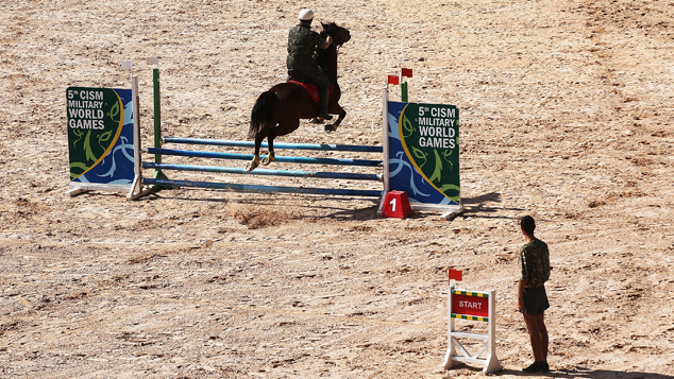
Kiwi sporting officials want answers from Olympic organisers after a deadly horse disease was discovered at the Rio 2016 equestrian venue.
Two horses from the site tested positive for highly-contagious Glanders disease in April but international health officials and sport bodies were kept in the dark.
The issue has been thrust into the spotlight just days before horses and riders descend on Rio de Janeiro for next week's Olympic venue test. Organisers promise the horses will be safe, even though tests are ongoing.
Equestrian Sports New Zealand had no knowledge of the situation until contacted by the Herald on Sunday. High performance director Sarah Dalziell said national sporting bodies should have been alerted by both the Rio 2016 committee and International Equestrian Federation.
"We would have expected to have heard about it when they found the first outbreak, in all honesty, and what they were doing to manage it in the lead-up to the test event," she said.
ESNZ and the New Zealand Olympic Committee were seeking an explanation from those organisations.
The equestrian venue, at Rio de Janeiro's Deodoro military complex, housed military horses until a six-month quarantine of the site began in February.
Glanders was identified in two of the horses in April.
They were euthanised before further tests came back negative -- causing confusion about whether the disease really was present at the venue. Now, three months on, the Brazilian government are working with international authorities to carry out conclusive tests. The results won't be known until late next week, after the venue trial begins.
A Rio 2016 spokesman said the six-month "sanitary break" means there is no risk to horses competing in the test event.
Only Brazilian horses and riders are taking part, but Dalziell, high performance coach Erik Duvander and rider Clarke Johnstone will attend as observers.
They are expecting a briefing on Glanders from Olympic organisers.
Despite the safety assurances, Brazil's agriculture ministry is also now testing 584 horses from the army's riding school and surrounding farms for infection. Those results won't be known until October.
Countries are required to immediately notify the World Organisation for Animal Health (OIE) of any Glanders outbreaks but, because the disease was already present in other parts of Brazil, the government had a much longer notification window.
OIE first received an "informal" notification at the end of May and is still awaiting a formal notification, expected within days as part of a six-monthly update from the Brazilian government.
OIE helped design Rio 2016's quarantine measures, and their director-general, Dr Bernard Vallet, said there's no risk to horses competing at Deodoro.
However, he was critical of the Brazilian government's communication, saying as the Olympic host, they "must be more transparent about the situation".
Rio organisers are already under fire because of concerns about water safety at the sailing and rowing venues.
Glanders disease
- It is an incurable and potentially fatal bacterial infection, mainly affecting horses, donkeys and mules.
- Spread through contaminated feed and water, coughing and sneezing, or skin lesions.
- Can also be transmitted to humans.
- Infected animals need to be euthanised to prevent the
- disease's spread.
- Has been eradicated in many developed countries.
- Was used as a biological weapon against animals during World War I, a practice now banned under international law.
Take your Radio, Podcasts and Music with you









